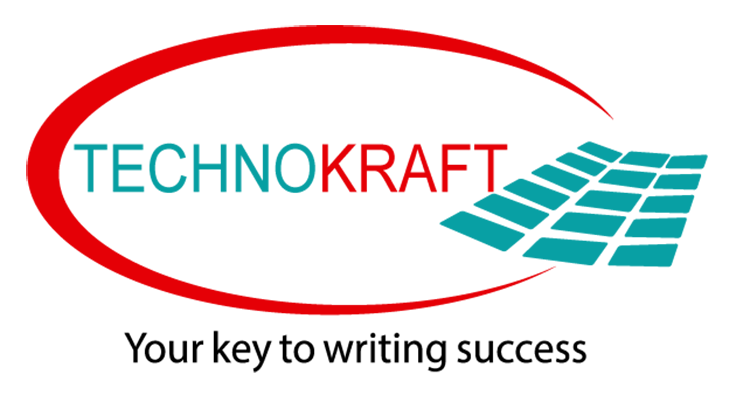
The Precision Behind Progress: How a Science Technical Writer Shapes Modern Knowledge
The Precision Behind Progress: How a Science Technical Writer Shapes Modern Knowledge
Clear scientific communication drives progress across industries, research labs, and innovation hubs. However, scientific information often appears dense, complex, and difficult for a general audience to understand. This is where a Science Technical Writer Expertise steps in. With a blend of analytical thinking and strong communication skills, this professional transforms intricate data into accessible and accurate content. Their work supports researchers, empowers industries, and guides decision-makers.

In this blog, we explore how a science technical writer works, why their role matters, and how they help bridges between discovery and the world.
1. Understanding the Role of a Science Technical Writer
A Science Technical Writer Expertise as a communicator who translates scientific terms, processes, and outcomes into clear content. Their responsibilities extend far beyond basic writing. They evaluate data, verify source accuracy, and ensure that readers understand essential information without losing scientific integrity. Because many scientific topics involve advanced concepts, this writer acts as an interpreter for readers from various backgrounds.
Although the science domain evolves rapidly, a science technical writer adapts to these changes. They research new findings, stay current with trends, and maintain a strong grasp of emerging technologies. Moreover, they ensure that the final document maintains clarity and correctness. Due to this approach, organizations rely on them to maintain trust and transparency in their communication.
Furthermore, they collaborate with scientists, engineers, and researchers to gather insights. This teamwork leads to precise and meaningful documentation. Many institutions also depend on them to meet regulatory guidelines or prepare grant reports. As a result, this role becomes essential across scientific and industrial landscapes.
2. Crafting Clear and Accessible Scientific Content
Producing understandable scientific content requires a structured process. A science technical writer begins by studying the source material. After that, they organize the information into sections or steps that guide readers through the subject. Because accuracy is vital, every detail undergoes careful review.
Even though scientific data may appear complex, a good writer simplifies it without changing its meaning. They use comparison, real-world examples, and clear diagrams to support understanding. This method helps readers connect with the content more easily. In addition, the writer ensures each paragraph transitions smoothly into the next. These transitions help maintain logical flow, especially in lengthy documents.
A science technical writer also considers the target audience. Content for experts may include deeper detail. However, content for students or the general public must remain simple and engaging. Creating this balance separates great writers from average ones. Therefore, their ability to adapt tone and structure enhances the value of the communication.
3. Tools, Techniques, and Research Methods Used in Science Writing
Modern scientific communication depends on advanced tools and research methods. A skilled science technical writer employs reference managers, document templates, specialized editors, and data visualization tools. These resources help them maintain consistency and quality throughout every document. To verify information, they analyze research papers, case studies, and experimental data. Because credibility matters, they confirm facts with experts when required.
Furthermore, they often use software that supports clear formatting and graphics. Charts, tables, and diagrams strengthen understanding. Many industries require compliance documentation. These documents follow strict guidelines. Therefore, writers use frameworks and checklists to meet each requirement.
Meanwhile, the research process also remains important. A science technical writer reviews recent scientific reports and industry news. This practice ensures their writing reflects current knowledge. Strong research habits allow them to avoid errors and maintain high professional standards. As a result, their documents stand out for reliability and clarity.
Additionally, they incorporate feedback cycles. These cycles refine technical content and enhance readability. Many writers participate in team reviews with subject matter experts. Because science is detailed, every revision improves accuracy and presentation.
4. Real-World Impact Across Industries and Research Fields
A science technical writer influences many sectors, including healthcare, engineering, biotechnology, environment, energy, and education. Hospitals depend on them for medical guides, research summaries, and patient communication. Engineers rely on them for manuals, reports, and specifications. Meanwhile, environmental agencies use their skills to document conservation studies and sustainability findings.
Their work also supports innovation. Clear documentation accelerates product development and testing. When teams communicate effectively, they prevent errors and delays. A science technical writer improves this communication. Because they translate complex data, teams understand requirements faster and execute plans efficiently.
In academic settings, they prepare research articles and grant proposals. These documents allow institutions to secure funding and share discoveries. With strong writing support, researchers focus on experimentation. As a result, the entire scientific ecosystem becomes more productive.
Their contributions also extend to the public. They create articles, guides, and educational materials. These resources help people understand scientific issues, such as climate change, public health, and emerging technologies. Through this outreach, a science technical writer encourages scientific literacy and informed decision-making.
5. The Growing Demand and Future Skills for Science Technical Writers
As industries adopt advanced technologies, the demand for skilled science technical writers rises. Artificial intelligence, biotechnology, space exploration, renewable energy, and nanotechnology create new documentation needs. These fields require precise writing to guide experts and support global communication.
Looking forward, writers must develop new skills. Data literacy will play a major role. Writers who understand data patterns and analysis can produce more accurate documents. Visual communication will expand as well. Infographics, charts, and interactive media help audiences absorb scientific information quickly.
Additionally, collaboration tools and remote workflows continue to evolve. A modern science technical writer must manage multiple platforms and work across virtual teams. Strong critical thinking, adaptability, and research capabilities remain essential.
Moreover, ethical communication becomes increasingly important. Writers must ensure transparency, fairness, and accuracy. They help organizations build trust by presenting information responsibly. Because misinformation spreads easily, the demand for trustworthy science communication keeps growing. A science technical writer supports this mission with precision, clarity, and integrity.
Conclusion
Science evolves rapidly, and the world needs clear communication to keep pace. A Science Technical Writer Expertise complex data into meaningful content that informs, educates, and inspires. Their work connects researchers with industries, policymakers with facts, and society with knowledge. Through accuracy, structure, and creativity, they strengthen the flow of scientific information.
As scientific innovation continues to expand, the importance of strong technical writing grows with it. A skilled science technical writer stands at the center of this growth, guiding the world through complex ideas and bringing clarity where it matters most.
